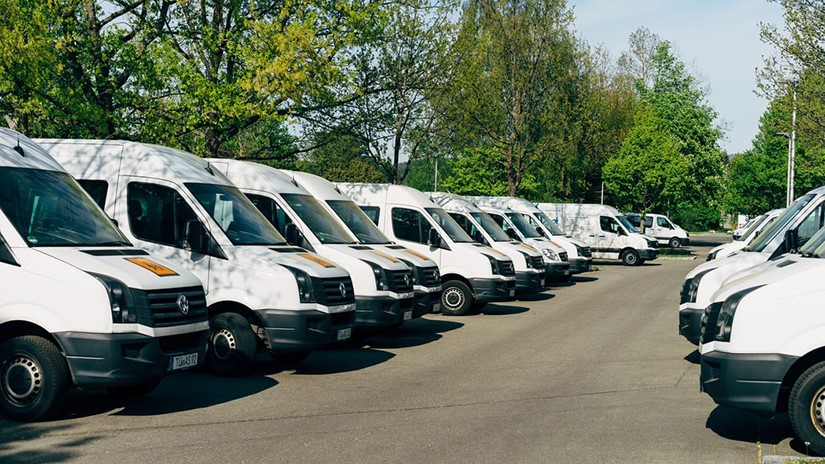 Under the current trading conditions, all businesses are driving to free up cash. As a fleet usually contributes 42% to 48% of the operating costs in a business, it makes sense that this is an area that can be interrogated to find capital savings. What does this mean for your fleet strategy and operations?
Under the current trading conditions, all businesses are driving to free up cash. As a fleet usually contributes 42% to 48% of the operating costs in a business, it makes sense that this is an area that can be interrogated to find capital savings. What does this mean for your fleet strategy and operations?
In just a matter of a few months, the Coronavirus has disrupted everything in the world. Many questions are doing the rounds, some specifically surrounding fleet. Automotive Fleet and Merchant Fleet hosted a webinar on fleet strategies for a post-pandemic market, and although US based, true fleet managers follow the same best practice methodologies for fleet in southern Africa.
Cash is king
There is no right or wrong answer in restructuring your fleet to obtain cash gains. The need for fleet vehicles changes from industry to industry, and even business to business within the same industries. Each unique business will be looking at their own fleet strategies versus the finance structures that have been put in place in order to free up capital. Reassessments of fleet cannot be done in isolation by finance, and input from all areas of the business will be critical. But what are the options open to companies, and where do you start?
Reviewing the lease vs. ownership model
Knowing the total cost of ownership in your fleet is important. You need to compare different financing methods over the useful lifetime of the vehicle. Eqstra Fleet Management has a useful calculator called the Discounted Cash Flow (DCF) calculator that will compare different finance methods such as HPs, financial leases and operating rentals and will provide you with an analysis of the total cost ownership over the period. An easy yet powerful calculator and tool can be downloaded HERE at no cost.
Determine which vehicles are critical in your business
Most businesses have had a fleet of vehicles for as long as they have been trading. In larger fleets it may be time to review the purpose of each individual vehicle and consider the revenue that it drives for your business. In short, is it necessary to have a dedicated vehicle, or can the job be done by an alternative vehicle? What is the percentage of time the vehicle is used or stands idle? Split your vehicles into essential and non-essential vehicles.
Non-essential vehicles
To free up cash, consider disposing of your non-essential vehicles. If you own your fleet you may want to consult a remarketing specialist like Eqstra who has access to bulk buyers to achieve the best price on resale values. Current delays at auction houses should be considered as slower sales will hold up any injection of cash into your business.
Essential vehicles
You will need to consider whether your essential vehicles are owned or leased.
If you fully own your vehicles, you have the option to sell them and inject a cash sum into your business by changing the way you finance. The benefit will be in the short-term though, as you may need to incur debt for a longer period, but you will have a fixed budget to work with.
A sale and leaseback could also be an option, a fleet management company can purchase your vehicles from you and lease them back to you. The advantages of a sale and leaseback are:
- The leasing company will pay you for your fleet, and this cash can be used in other areas of your business;
- If you do have re-payments on the vehicles, you may achieve better terms from a new provider depending on the age of the vehicles and the interest rate you are quoted.
- By consolidating your fleet assets under one provider you will ease the administration burden on your business. Leasing providers in most instances manage the administration of traffic fines, fuel cards and the vehicle’s annual licence. This leaves you free to concentrate your efforts on your core business.
Even if you are ‘locked in’ a finance arrangement, all is not lost. Fleet management companies often restructure leases and often this results in a lower cost or improved contract terms for the remaining of the vehicle life.
Extending the lifecycle of your vehicles
One of the choices fleet owners have is to extend the life of your vehicles beyond what you planned. Although the fleet owner would not have to invest any money in new vehicles immediately which is a large positive, the fleet owner should be aware of the trade-off between residual values and the maintenance spend that could increase as the fleet ages as more essential and costly items such as gearboxes, or engines could require repairs.
Deciding when to sell a vehicle as opposed to keeping a vehicle is tricky. You need to sell a vehicle before the operating cost outweighs the new vehicle cost.
It is best to take a long-term view considering the total cost of ownership. As so many factors need consideration, re-strategising your fleet should be done in collaboration with fleet management experts who have specialist fleet analysts. The analysts are dedicated to performing fleet audits, determining optimum replacement periods and recommending the best suited finance solutions for your own unique business needs.
